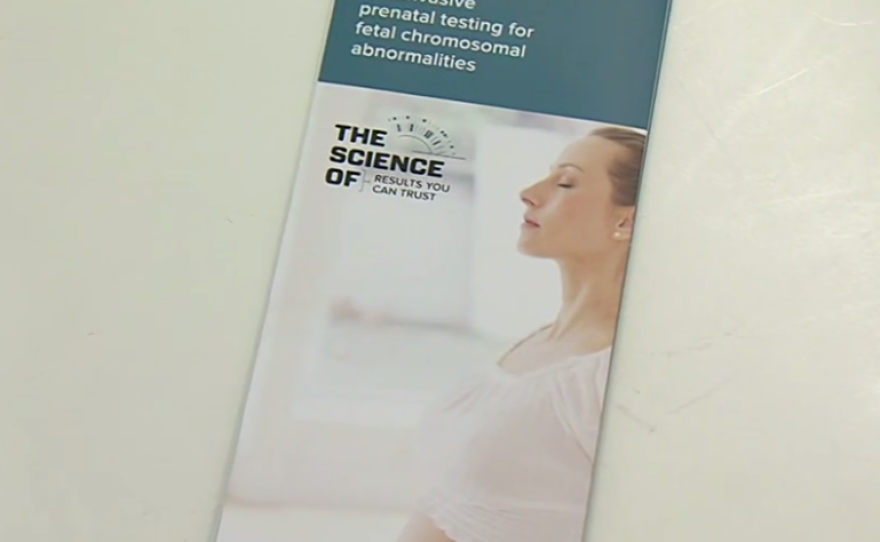The DNA in your veins isn't yours alone. Your blood also contains what some scientists call "alien" DNA. It could belong to a fetus, a virus, or even a tumor.
In recent years, new blood tests have been isolating this "alien" DNA to screen for disease. Pregnant women have been among the first to benefit from these tests in routine care. They've also been the first to deal with the tests' shortcomings.
Melanie Christie's 14-month-old son Zachary has no trouble keeping up with the family dog while playing in a Clairemont park. He's a healthy, energetic toddler.
But before Zachary was born, doctors were concerned he might not turn out this healthy. Christie had three miscarriages before getting pregnant with him at 36.
"When I saw my doctor, she — because of my age and because of my history — suggested that we do a MaterniT21 test," Christie said.
She had never heard of MaterniT21, a test made by a San Diego company called Sequenom. Her doctor explained it would require just a sample of her blood to screen for down syndrome and other chromosomal abnormalities.
"We went over to the lab and they drew blood right away," Christie said.
In about a week, a nurse phoned Christie with the results. The fetal DNA in her bloodstream looked perfectly normal. The test even revealed the sex of the fetus months before an ultrasound could.
"The test was very accurate," Christie said. "Our son is very healthy and smart and bouncy."
For Christie, one big perk was getting to skip amniocentesis, an invasive procedure that carries a small but real risk of miscarriage. Amnio used to be the go-to method for down syndrome diagnosis in women Christie's age. But when non-invasive prenatal tests like MaterniT21 became available in 2011, that started to change.
"We've now seen a nearly 70 percent drop in amniocentesis throughout the United States," said Eric Topol, chief academic officer at Scripps Health.
Topol says thanks to steep cuts in the cost of genetic sequencing, it's now easy to take a vial of blood and isolate DNA that doesn't match a patient's own DNA. This technique can uncover a whole lot more than down syndrome, he says, including infections, first signs of cancer, early-onset Alzheimer's and risk of premature heart attacks.
"We haven't even touched the boundaries of where this can go," Topol said.
But tests like the MaterniT21 aren't perfect. John Turocy is a reproductive geneticist at Kaiser Permanente in Northern California, and in a study recently presented at a San Diego conference he outlined one notable shortcoming of these tests.
Companies like Sequenom say their results are more than 99 percent accurate. But a significant number of Turocy's patients weren't getting results at all. And in a new study, he found those patients had something in common.
"When patients take the blood test and they don't get a result, that's really a high risk group," he said. "We found almost 15 percent of that group had a chromosome abnormality."
So, getting no answer is actually cause for concern. Other results can be even more confusing. Turocy says when younger women screen positive for trisomy 13 — which causes a rare and deadly condition called Patau syndrome — those results are more likely to be wrong than right.
"The marketing is ahead of the science," said Turocy. "If you factor back in the no-result patients, the sensitivity is somewhat lower. Still a good test, but it's not 99 percent. It might be 90 percent."
There's a lot at stake when these tests deliver false positives. The New England Center for Investigative Reporting recently found that incorrect results have even led to abortions.
Sequenom declined to comment for this story.
Christie understands that results aren't always accurate. But in her case, they were, and she recommends the test to expectant mothers.
"I prefer having the power of knowledge beforehand so I can prepare myself for what's to come," Christie said.







